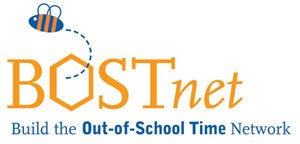"When does the protest start tomorrow?"
This question was asked of me by program staff when I picked up my kids from afterschool on Wednesday. It was the night before many of us gathered at the State House for Advocacy Day 2009. These OST educators were ready to bring hula-hoops and whistles to make a big noise in support of community-based organizations. While I encouraged them to come and be engaged in the dialogue with their colleagues, I had to explain that it is better thought of as an opportunity to network, speak to legislators and rally together than an opportunity to protest certain policies. The question, however, does highlight some simmering tension among providers who are being asked to do much more with fewer resources. How do we tap that energy to further sound policies for children and youth across a long budget process?
With the policy season in full swing, there is a heightened awareness of an issue that can be contentious and often fraught with difficult questions—MESSAGE. What is the proper frame to move an idea or goal forward? How important is it to control that message for maximum impact? The challenge for any coalition of diverse members is keeping people engaged around a shared goal while recognizing that people have diverse opinions on how to reach that goal. In fact, part of the value of coalitions is drawing on the varied perspectives of members and utilizing the best ideas available. Any attempts to inhibit open discussion in the name of political expediency will fail to mobilize people in the strongest possible way.
To keep this dialoge moving, I would like to offer two powerful ways of talking about the value of investing in youth programs:
Youth Programs Support Heathly Youth Development
An extensive body of research shows that quality youth programs support resiliency and build developmental assets in children and youth. By providing children key supports—safe and supportive environments, caring relationships, variety of interesting enrichment activities, flexible opportunities for skill building, opportunities for youth contribution and choice, and parental involvement—OST programs help youth become empowered, set acceptable boundaries, more engaged in their community and learning, and develop positive values, social competencies and self-identity. Research in youth development has long made the connection between the extent to which children have these assets and their resiliency—the skills and behaviors necessary to cope with life’s challenges.
Youth Development is Community Development
Investing in youth is investing in healthy communities. The research is clear. Young people who participate in quality youth development programs are more likely to be engaged in their communities, vote, maintain stable personal relationships, stay employed and have a postive outlook on life. Youth programs provide employment opportunities for young people in the community who can mentor others and provide a deeper connection to community life. Youth development programs also have an explicit role in helping youth transition from dependent child to productive adult. All of these are important, measurable benefits to communities.
As a community, we need to understand that there is an objective value to supporting youth programs that are linked to outcomes that are cumulative over time and can’t be easily measured through some point-in-time assessment. We also need to continue to advocate for the unique strengths and assets that these programs bring to partnerships and collaborations with other organizations so that their work is valued and respected and that partnerships yield the best results for our children and youth. Wouldn't we tap deeper creative energy by empowering youth programs to define their own expectations for quality services based on their understanding of community needs?
16 years ago

No comments:
Post a Comment